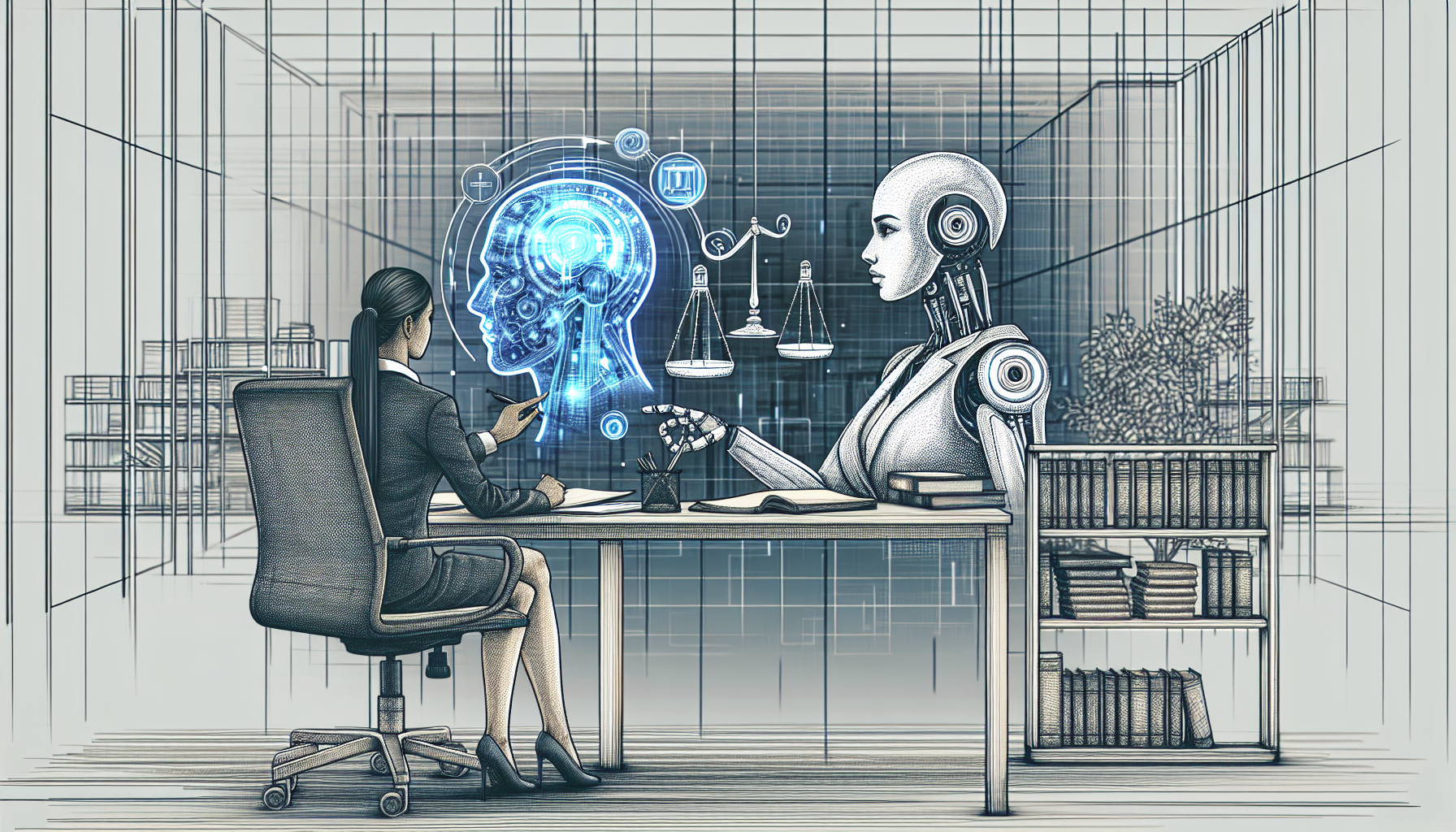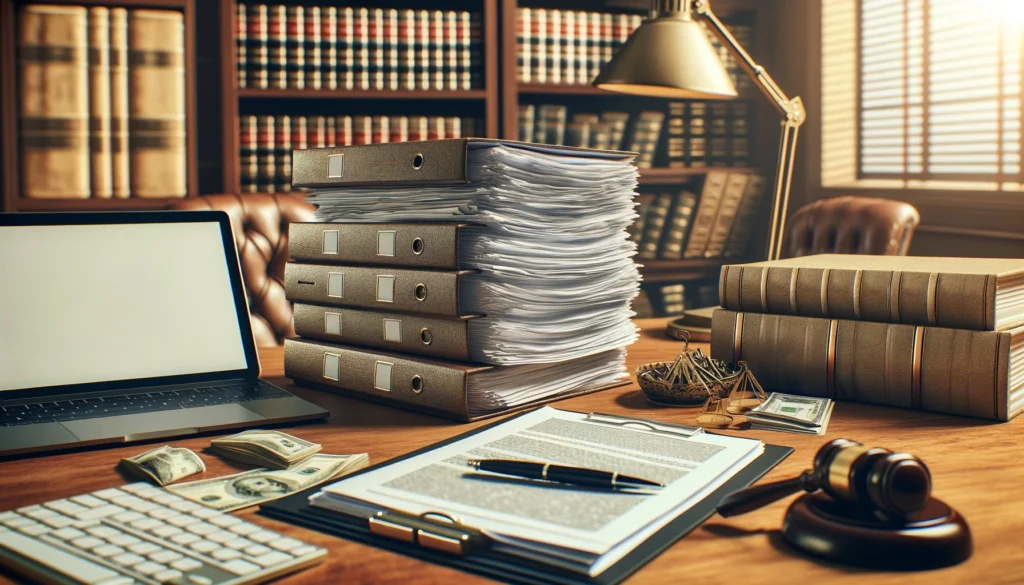
Setting the Stage for Efficiency
In the ever-evolving legal landscape, efficiency is the currency of success. Integrating advanced technologies such as ChatGPT into legal processes can amplify your practice’s productivity, enabling you to serve clients more effectively. ChatGPT, an AI language model developed by OpenAI, has transformative potential within various facets of legal work. By easing the burden of time-intensive tasks and enhancing accuracy, this technology allows legal professionals to allocate more time to client interaction and case strategy development.
The capabilities of ChatGPT extend across research, communication, documentation, and organizational tasks. This article explores how leveraging ChatGPT can optimize workflows, particularly focusing on legal research, client interaction, document management, litigation preparation, and ethical considerations. Let’s delve into how this AI model can be your secret weapon in modern legal practice.
Harnessing the Power of ChatGPT in Legal Research
Legal research is foundational to case strategy, yet it often consumes significant resources. By using ChatGPT, attorneys can streamline their research efforts, allowing for more precise and extensive investigations into case law, statutes, and regulations.
Creative Research Prompts to Expedite Case Law Searches
Effective research using ChatGPT begins with crafting detailed prompts. For instance, instead of a generic query, use focused prompts like:
- “Provide a summary of landmark precedents similar to
related to in .” - “Identify recent appellate decisions on
within the last five years in .”
Such prompts help the AI to filter and present more relevant information quickly, saving hours otherwise spent sifting through databases.
Leveraging ChatGPT for Statute and Regulation Clarifications
ChatGPT can also clarify complex statutes and regulations. For example:
- “Explain the key provisions of the
and how they impact in .” - “Summarize the changes in
post- .”
By breaking down dense legal texts, ChatGPT assists attorneys in understanding nuances that may affect case strategies.
By optimizing legal research using tailored prompts, ChatGPT sets the groundwork for more effective client interactions.
Also read:
Revolutionizing Client Communication and Intake Processes
Effective client communication and thorough intake processes are the keystones of a strong attorney-client relationship. ChatGPT can significantly enhance these aspects, making the overall experience seamless and efficient.
Generating Comprehensive Client Questionnaires
Client intake often involves gathering copious amounts of information. ChatGPT can generate detailed questionnaires tailored to the specific needs of a case. For instance:
- “Create a client intake form for a personal injury case involving a car accident, focusing on medical history, accident details, and witness information.”
By automating the creation of these questionnaires, attorneys can ensure no detail is overlooked, which can be critical in building a strong case.
Crafting Professional Client Correspondences and Updates
Effective communication doesn’t end with intake. Regular updates and correspondences are essential to maintaining client trust. Prompts such as:
- “Draft a follow-up email to a client updating them on the latest development in their case, mentioning key court dates and next steps.”
- “Compose a professional response to a client inquiry about their case’s current status and upcoming deadlines.”
These tailored prompts can help craft professional, clear, and concise communication, ensuring clients remain informed and engaged.
Transitioning smoothly from enhanced communication, the next logical step is to explore how ChatGPT can aid in drafting and reviewing legal documents.
Also read:
Drafting and Reviewing Legal Documents with Precision
Legal documentation requires meticulous attention to detail and precision. ChatGPT can assist attorneys in drafting and reviewing documents, enhancing both efficiency and accuracy.
Effective Prompts for Drafting Demand Letters and Legal Briefs
Drafting demand letters and legal briefs can be streamlined with specific prompts, such as:
- “Draft a demand letter for a personal injury case involving a slip and fall, detailing client injuries, medical expenses, lost wages, and the demand for compensation.”
- “Compose a legal brief arguing for
, citing relevant case laws and statutes for support.”
These prompts can help create structured and persuasive documents, ensuring all critical information is methodically presented.
Streamlining Document Review and Error Identification
Reviewing documents for errors and ensuring compliance with legal standards is another area where ChatGPT excels. Prompts like:
- “Review the attached contract for any ambiguous language or potential legal issues.”
- “Identify and correct errors in the attached legal document regarding
.”
By quickly sifting through text and identifying potential issues, ChatGPT enhances the accuracy and reliability of legal documents.
As documentation becomes more efficient, preparation for litigation can also benefit from AI assistance, particularly in discovery and trial preparation.
Also read:
Litigation Prep: From Discovery to Trial
Litigation preparation is a multifaceted process, often requiring extensive resources. ChatGPT supports these efforts by assisting with discovery and trial preparations, optimizing both time and output quality.
Assisting with Discovery: Crafting Interrogatories and Document Requests
Discovery can be expedited with the aid of ChatGPT prompts. For example:
- “Create a set of interrogatories for a breach of contract case focused on the defendant’s understanding of their obligations.”
- “Draft document requests pertinent to a wrongful termination case involving discrimination allegations.”
These prompts help generate comprehensive discovery documents, ensuring no stone is left unturned.
Preparing for Depositions and Trial: Mock Questions and Argument Outlines
ChatGPT can also assist in preparing for depositions and trial by generating mock questions and outlines:
- “Generate mock deposition questions for a witness in a medical malpractice case involving surgical errors.”
- “Draft an opening argument outline for a defense strategy in an employment lawsuit alleging wrongful termination.”
These tailored outputs enable attorneys to enter the courtroom with a well-prepared strategy, reducing last-minute stress and uncertainty.
Effective litigation preparation naturally segues into effective time management and scheduling practices.
Also read:
Innovative Time Management and Scheduling Hacks
Managing time efficiently is paramount in legal practice. ChatGPT can contribute significantly by automating calendar and task management to ensure deadlines are consistently met.
Automated Calendar Management
Automated calendar management can be achieved with prompts such as:
- “Create a court deadline calendar for a civil litigation case set to go to trial in six months.”
- “Organize and prioritize upcoming case deadlines and court appearances for the next quarter.”
This ensures that all critical dates are easily accessible and no important deadlines are missed.
Managing Task Lists and Deadlines
Efficient task management can be facilitated with commands like:
- “Generate a weekly task list prioritizing ongoing cases and client follow-ups.”
- “Provide a daily schedule breakdown for a high-profile case preparation week.”
By staying organized, attorneys can better focus their efforts on case strategies and client needs, while AI handles the logistical nuances.
Finally, as we exploit the capabilities of ChatGPT, it’s crucial to address the ethical considerations that accompany its use.
Also read:
Ethical Considerations and Best Practices
While the integration of AI in legal practice offers many advantages, it is imperative to maintain ethical standards and ensure client trust.
Ensuring Client Confidentiality
Using AI tools necessitates stringent measures to protect client confidentiality. Always verify that any utilized AI platform complies with data protection regulations and does not store sensitive client information. For example:
- “Ensure the chosen AI platform for client data processing adheres to
and our firm’s data privacy policies.”
Avoiding Over-Reliance on AI
While ChatGPT is a powerful tool, it should complement, not replace, professional judgment. Regularly review and validate AI-generated content to ensure accuracy and relevance, and remember to:
- “Consistently cross-check AI findings with multiple sources to ensure comprehensive legal research.”
By adhering to ethical guidelines and best practices, attorneys can maximize the benefits of ChatGPT while maintaining professional integrity.
In conclusion, ChatGPT’s advanced capabilities offer unprecedented opportunities to enhance efficiency, accuracy, and productivity in legal practice. From research to communication, documentation to litigation preparation, and time management to ethical practices, integrating this AI tool could revolutionize the way legal professionals work, ensuring they can devote more time to crafting robust case strategies and client advocacy.


